The ancient land of Iraq has thousands of years of history. The most valuable cultural sights of this country are an invaluable heritage of all mankind. Modern Iraq is the heir to the legendary Babylon, the ancient civilizations of the Tigris and Euphrates, a place where different cultures and religions intertwined for hundreds of years. Fairy-tale Baghdad, the once picturesque "Venice of the East" city of Basra, revered by Shiite Muslims Karbala and An-Najaf - all these places seem to be waiting for thousands of tourists who came to admire the ancient buildings and delve into the history of the country.
Unfortunately, a trip to Iraq in our time is an extreme tour for the desperate. Echoes of the Iraq War 2003-2011 have not subsided so far, for how many years the civil war has been going on. Many areas of the country where there are interesting sights (Mosul, Kurdistan province) are occupied by terrorists and rebels. The tourism industry in Iraq is not developed at all, no one guarantees security to a foreigner, since the government does not control many territories of its state.
What to see in Iraq?
The most interesting and beautiful places, photos and a brief description.
Ziggurat of the moon god Nanna
A significant and valuable monument of the times of the Mesopotamian civilization. The temple was erected at the behest of King Urnammu during the rise of the mighty dynasty of Ur. The ziggurat was built around 2047 BC and is about the size of the Tower of Babel. The structure is well preserved, given that its age is more than 4000 years.
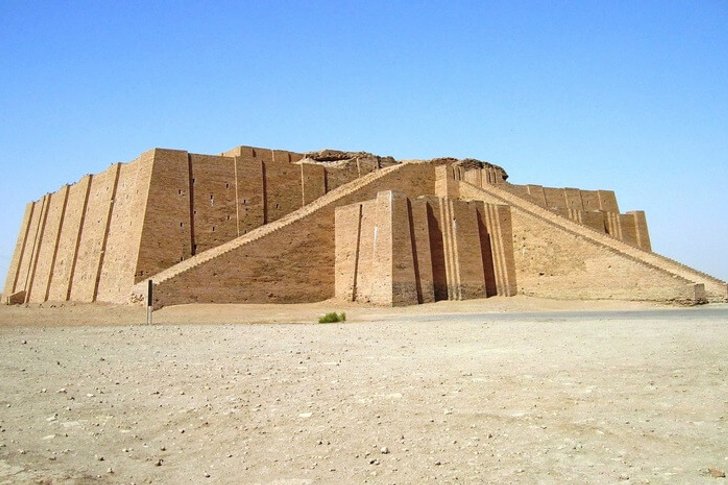
Address: Ur, Iraq
Opening hours: 24/7
Erbil Citadel
Located in Iraqi Kurdistan. It is a building with 30-meter walls and an area of more than 10 km². The citadel was built more than 5000 thousand years ago as a defensive structure, the city around the citadel grew about 4000 years ago. At various times, the Assyrians, Persians, Babylonians, Turks and Arabs ruled over the citadel.
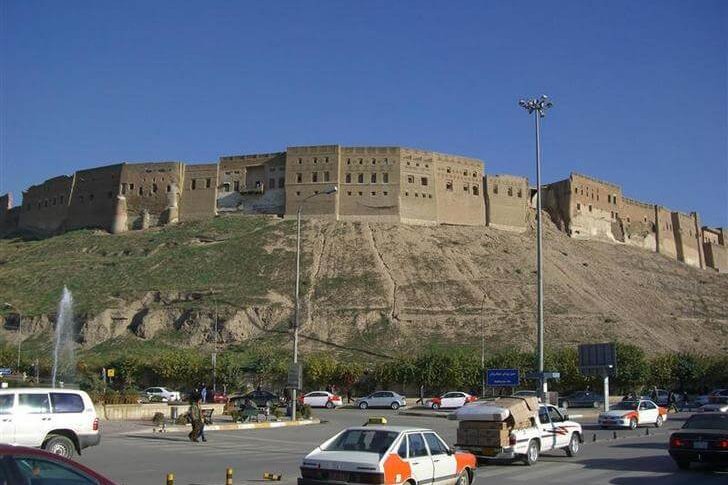
Address: Erbil Citadel, Erbil, Iraq
Opening hours: 08:00 - 18:00
Babylon
Once a great city of ancient Mesopotamia, mentioned more than once in the Old Testament. It was an important cultural, political and economic center of the ancient world, in the II-I millennium BC. was the capital of the legendary Babylonian kingdom, in the 4th century BC. - the capital of the empire of Alexander the Great, in the 1st century BC. - one of the political centers of the Achaemenid state. Fell into decline from the 3rd century AD.
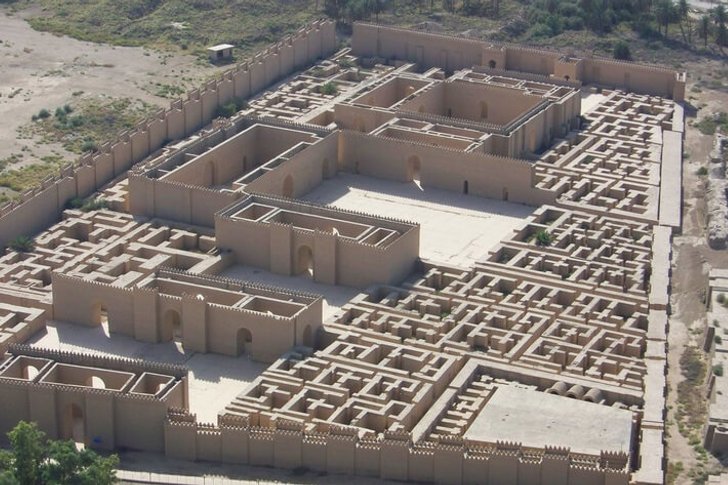
Address: Babylon, Iraq
Opening hours: 08:00 - 17:00
Ruins of the ancient city of Hatra
Hatra is a city of the times of the Parthian kingdom, located in the north of Iraq. The Tigris and Euphrates rivers flow here, for centuries the settlement was an important trading point, for which different empires fought. In 2015, the city was destroyed by ISIS militants, leaving only ruins of well-preserved temples and squares.
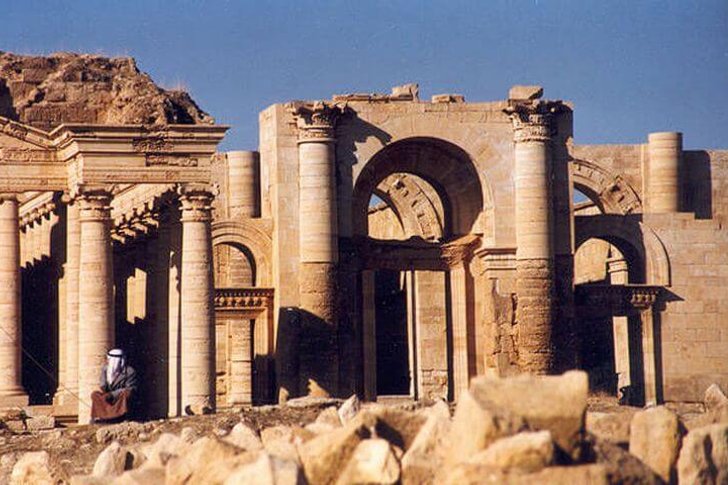
Address: Hatra, Iraq
Opening hours: 08:00 - 17:00
Ancient city of Nineveh
Nineveh was the last capital of the Assyrian kingdom. The period of exaltation fell on the years of the reign of King Sinnacherib. He turned Nineveh into a luxurious and rich city, surrounded it with a 12-kilometer defensive wall. In the I millennium BC. more than 120 thousand people lived in the city. On the territory of Nineveh, the library of Ashurbanipal was found.
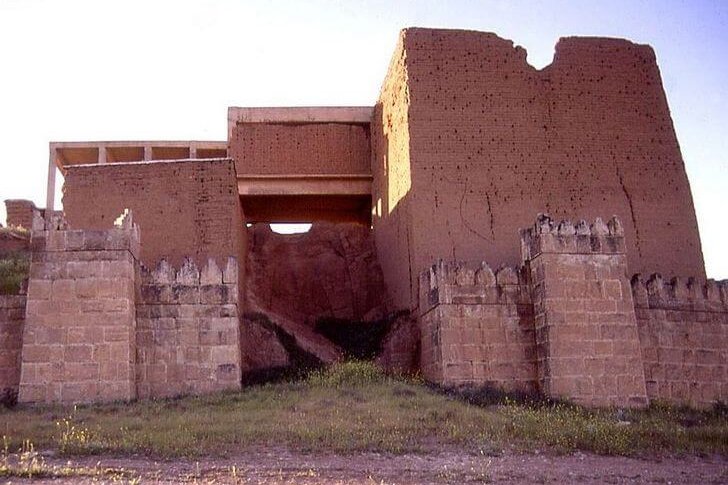
Address: Nineveh, Iraq
Opening hours: 08:00 - 17:00
Swords of Cadisia
Monument in the city of Baghdad, personifying the victory in the Iraqi war. The monument was designed according to the sketch of Saddam Hussein, and later became one of the main attractions of the capital. The height of the swords is more than 40 m, they are made of metal, which was obtained by melting down captured weapons and equipment.
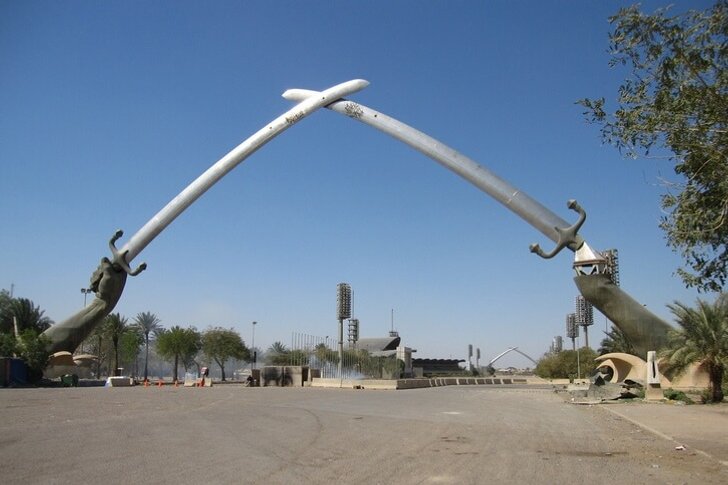
Address: Qadisiyyah, Iraq
Opening hours: 24/7
Al-Askari Mosque
The main Shiite temple of Iraq, the tomb of Imams Askari and Ali al-Hadi. The building was built in the 10th century AD. and for many centuries served as a place of pilgrimage for Shiite Muslims. In recent years, the mosque has become an object of terrorist attacks, the once magnificent golden dome has been destroyed. But she still works, gathering believers for prayer 5 times a day.
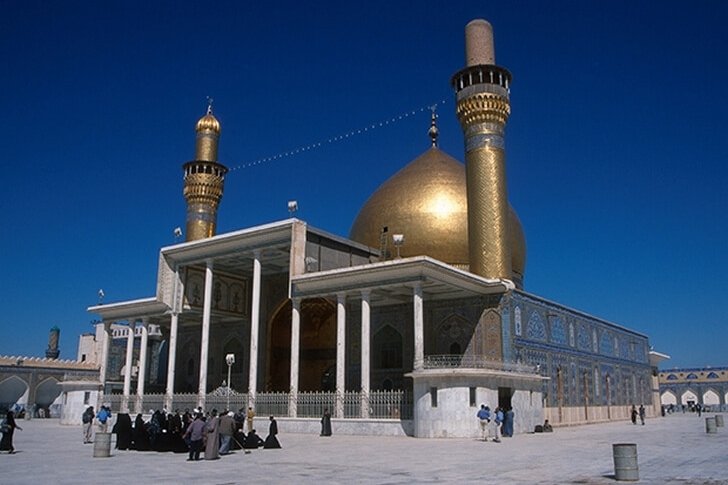
Address: Al-Askari Mosque, Samarra, Iraq
Opening hours: 08:00 - 17:00
Imam Ali Mosque
An important center of Islam in the city of Najaf. According to Shiite tradition, Adam and Noah were buried at the site of the mosque. Over the long centuries, the mosque was repeatedly destroyed, but always restored again, so it survived and survived to this day. Many Shia preachers who contributed to the development of this branch of Islam studied at the temple.
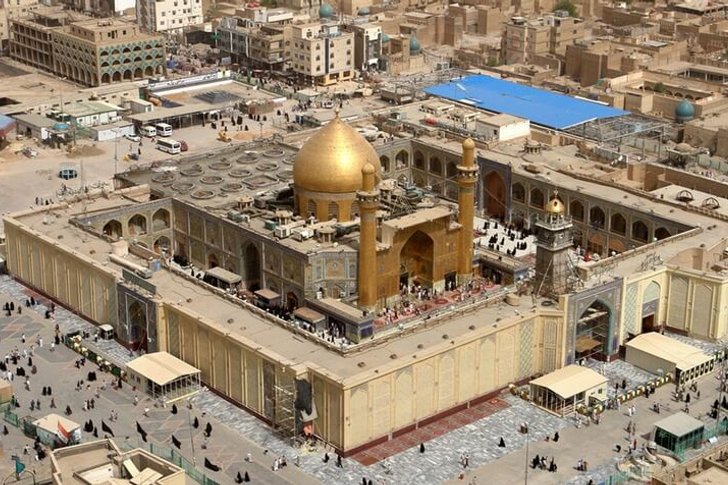
Address: Imam Ali Mosque, Najaf, Iraq
Opening hours: 24/7
Great Mosque in Samarra
A unique architectural complex in the city of Samarra. The minaret is made in the form of a spiral rising to the sky, the width of the base is 33 meters, the diameter of the highest point is 6 meters. The tower rises above the valley of the Euphrates and the Tigris, reminding of the presence of Islam in these places. It is considered one of the main Muslim shrines.
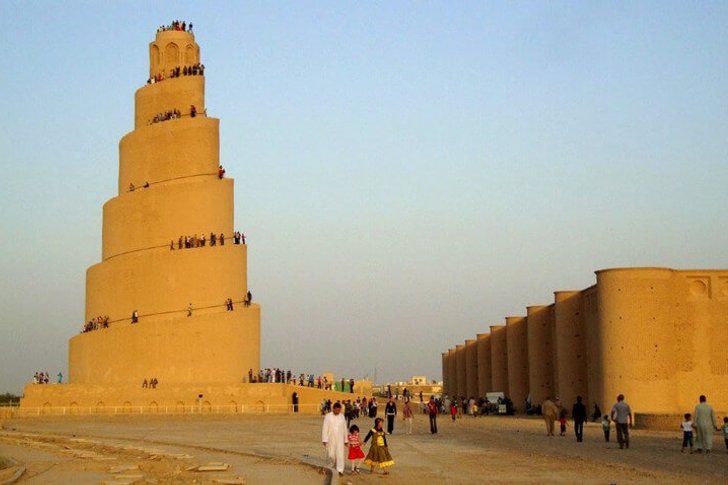
Address: Great Mosque of Samarra, Samarra, Iraq
Opening hours: 08:00 - 17:00
National Museum of Iraq
The largest and oldest Iraqi museum, where the most valuable exhibits were once exhibited: artifacts preserved from the time of Mesopotamian civilizations, jewelry, statues of ancient Sumerian deities, various household items, weapons. During the Iraqi war, the museum was looted, out of 15,000 stolen exhibits, only 4,000 were returned.
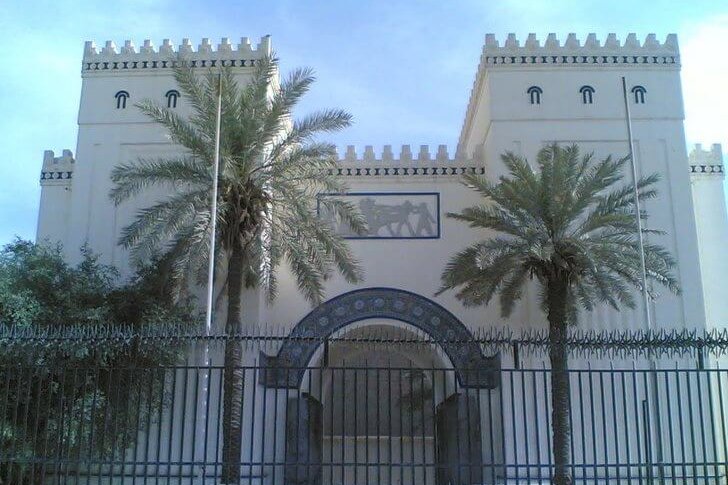
Address: Iraq Museum, Baghdad, Iraq
Phone: +964 1-719-1935
Opening hours: 08:00 - 15:00
Abbasid Palace
The residence of the Abassid dynasty (originating from the uncle of the prophet Muhammad Abbas ibn Abd al-Muttalib) XII-XIII centuries. These rulers stood at the head of the state for more than five centuries. The building is a striking example of the architecture of Arab Mesopotamia. The interior halls were richly decorated with mosaics, elements of exterior decoration and walls have survived to this day.
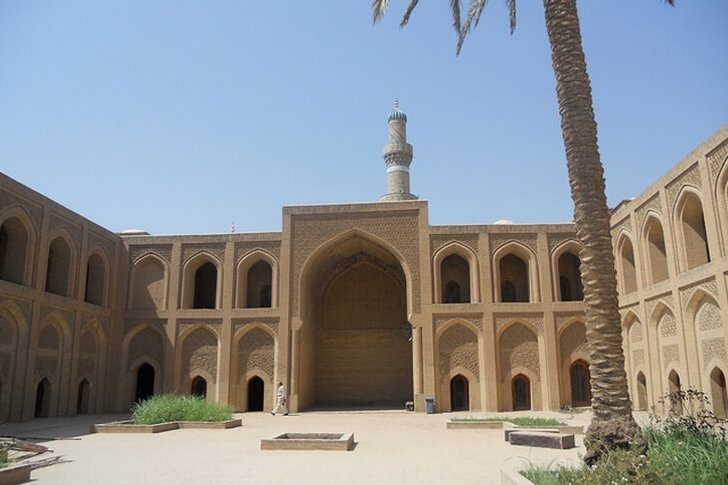
Address: Abbasid Palace, Baghdad, Iraq
Opening hours: 08:00 - 17:00
Monastery of Mar Mattai
One of the oldest Christian monasteries on Mount Alfaf. It was founded in the 4th century. AD a hermit named Matthew who fled from persecution by the Roman authorities. Mar Mattai means "Saint Matthew" in Arabic. During the past centuries, the monastery was attacked several times by the Kurds. Now the monastery is operating, it is a shelter for people fleeing the militants.
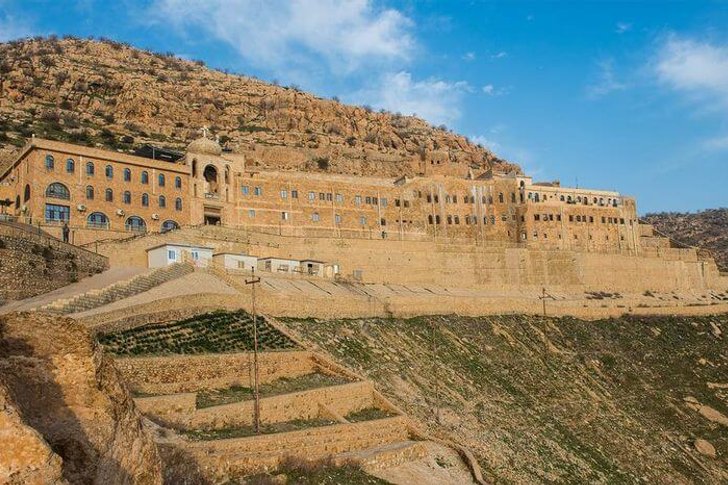
Address: Monastery of Mar Mattai, Mosul, Iraq
Opening hours: 08:00 - 17:00
Monastery of Rabbana Hormizda
Another ancient Christian monastery of the 7th century. on the territory of Iraq. Repeatedly subjected to attacks by Muslims, who destroyed and plundered the territory. In the 19th century Catholic monk Jibrail Danbo, with the help of his associates and the Bishop of Mosul, revived the monastery, but the pogroms continued. In 1975, repairs were made in the monastery, and since then pilgrims have been coming to the monastery.
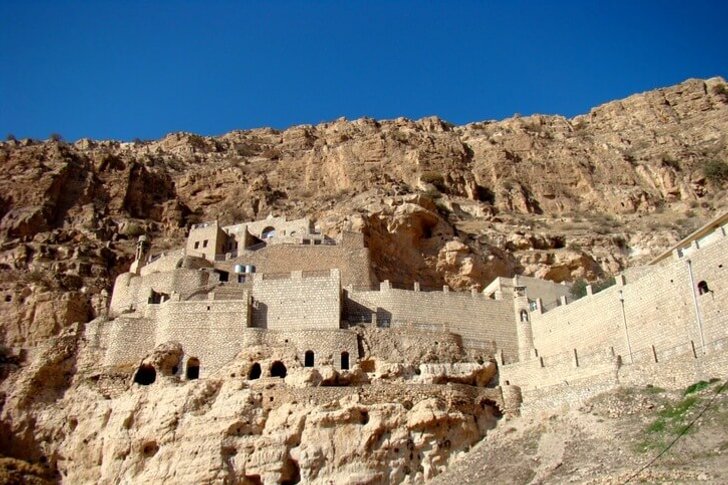
Address: Rabban Hormizd Monastery, Erbil, Iraq
Opening hours: 08:00 - 17:00
Shanidar Cave
Located in the mountains of Kurdistan in Iraq. Traces of the presence of Neanderthals were found in the cave. Researchers who support the theory of the divine origin of the universe constantly report on unique finds in the cave. These finds confirm the reality of the Flood, which led to the death of mankind (according to the Old Testament).
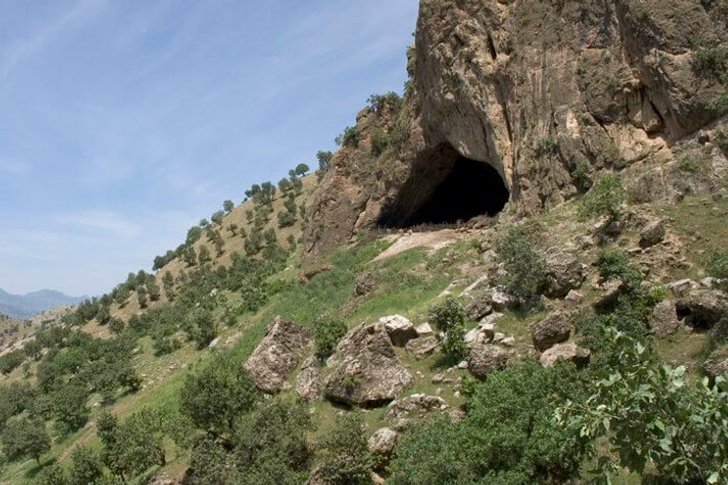
Address: Shanidar Cave, Shanidar, Iraq
Opening hours: 08:00 - 17:00